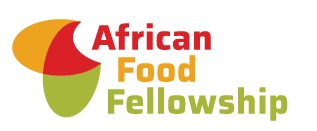Summary of an exchange with the African Food Fellowship (article written by the program).
Ken Lohento is an award-winning global food systems leader known for his work with Pitch AgriHack, digital villages and enabling youth livelihoods. He has more than 20 years of experience designing and managing national and international programmes related to digitalisation for food security, socio-economic development, and youth in agriculture. In this inspiration Session with Kenyan Fellows, he talks about the importance of empathetic, collaborative leadership and how it enables him to thrive in the face of adversity.
What type of leader are you?
A servant leader. I put myself at the service of stakeholders and the people I am leading. I leverage their strengths to achieve a common goal. When working with a team, I look to collective solutions because I am an inclusive leader. For example, when I started at The Technical Centre for Agriculture and Rural Cooperation ACP-EU (CTA) in 2009, I was given a probation period of six months to propose an effective program, otherwise my contract would not be confirmed.. The first thing I did was look at CTA’s strategy and see where gaps were. Through interactions with external stakeholders, I decided to focus on ICT and youth in agriculture and started a programme called Agriculture Rural Development and Youth Information Society (ARDYIS) in 2010. From this foundation, we launched a host of youth- focused activities, including Pitch AgriHack, and went on to win awards and impact the lives of thousands of young people, equipping them with the skills to use technology in agribusiness. It has been one of the most successful programme developed by CTA. I learnt that as long as you understand the internal and external environment of where you work and develop good partnerships, you will succeed.

Digital infrastructure in Africa is imbalanced, especially in the agriculture sector. What worked for you in setting up something so ambitious?
Working with others. I understand digital infrastructure to be a systemic issue that requires systems thinking approaches. We are living in a world that is volatile, uncertain, complex and ambiguous (VUCA) so it requires the involvement of many stakeholders to better address issues. Working in collaboration with others is key.
How did you handle situations where you were trying to build momentum but faced resistance?
One of the main tools that I use to address challenges is to put myself in the shoes of the stakeholder with whom I am having challenges. For example, when we started hackathons at CTA, everyone was excited and interested because it was a new approach. But after two years, I started hearing concerns that we had too many prototypes that were going nowhere, so why should we continue to do more hackathons? I launched a survey to ask our stakeholders, what do you want? What are your needs? Through these interactions, and looking at the external environment, we decided to stop doing hackathons and target those with successful prototypes and support them to develop and scale. We taught them how to put in place successful business models and put them in contact with investors. That is how we transitioned from hackathons to Pitch AgriHack. My secret is to listen to stakeholders and give them what they need.
In environments where your seniors slap the breaks on initiatives and slow you down, how do you navigate the challenges?
I use the same approach as before. I try to understand where they are coming from and what is driving their inaction or resistance. Then I see where we can compromise. For instance, it might be that they are wary of too much ICT integration and worry about job losses. I support them and raise their capacity to embrace ICT solutions. It’s not always useful to go as fast as possible, you need to slow down to their pace in order to successfully move forward. Follow their rhythm because you need their support. But sometimes, compromise is not possible, and in that case, you need to move away and do something else.
You have talked about bringing empathy and a humane approach to your work. How do you do this with stakeholders who do not take the same approach?
It can be very difficult to work with unempathetic leaders. I try to understand their thinking then explain the rationale of my approach and why it is the most effective way of getting things done. If they are not receptive to it, the solution is either to step away from that initiative, or provisionally step back to give the other person a chance to come around. When faced with a wall, you need to know when to stop pushing so as not to waste your time.
It is important to develop good leadership capabilities, which is what the African Food Fellowship is doing. Food systems leaders need to develop empathy, openness and a collaborative mindset and a systems thinking approach in order to succeed.
Last word?
I would like us to think like Wangari Maathai. Are you familiar with her story about the hummingbird? It means doing what we can with what we have. Sometimes we face situations that discourage us from acting, but we must do our bit in order to improve food systems. I invite all of us to be hummingbirds.
Date: Février 2022
Source : Lien originel : African Food Fellowship Newsroom









